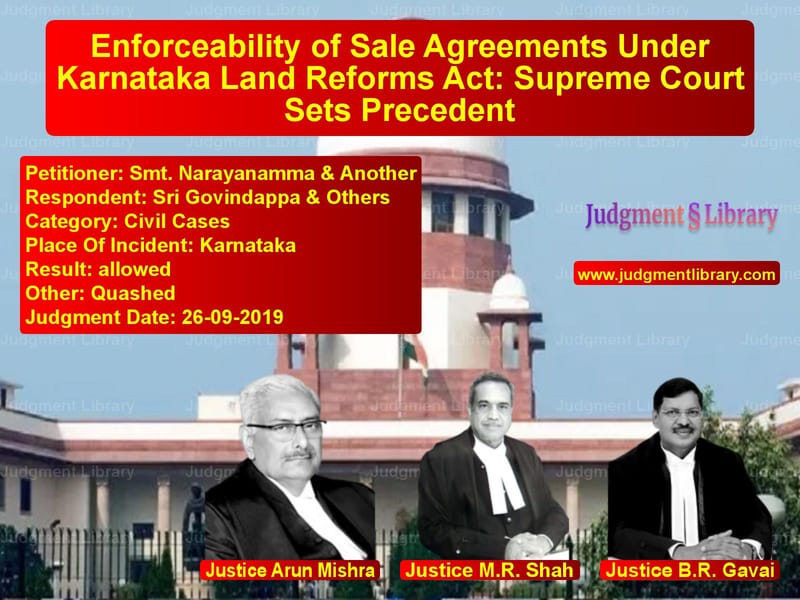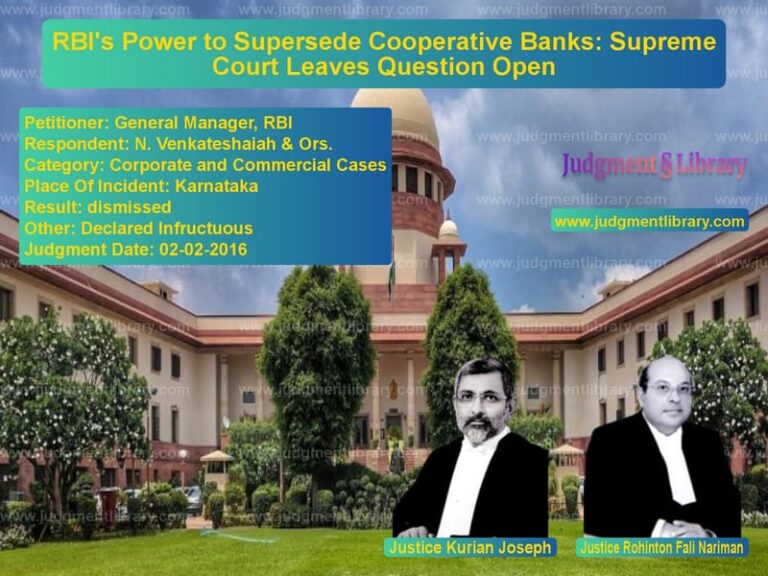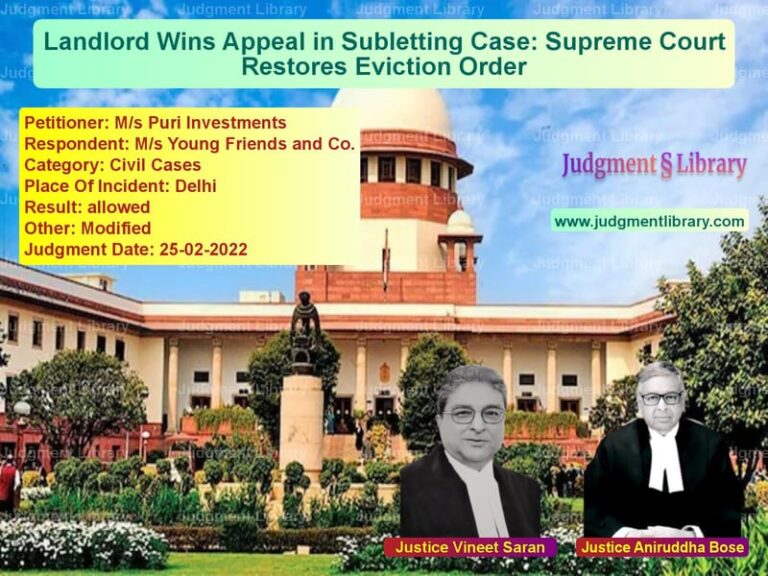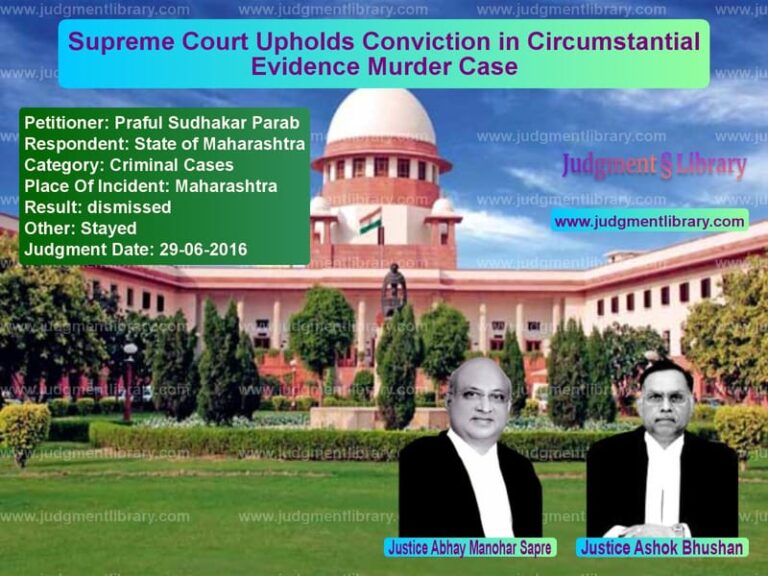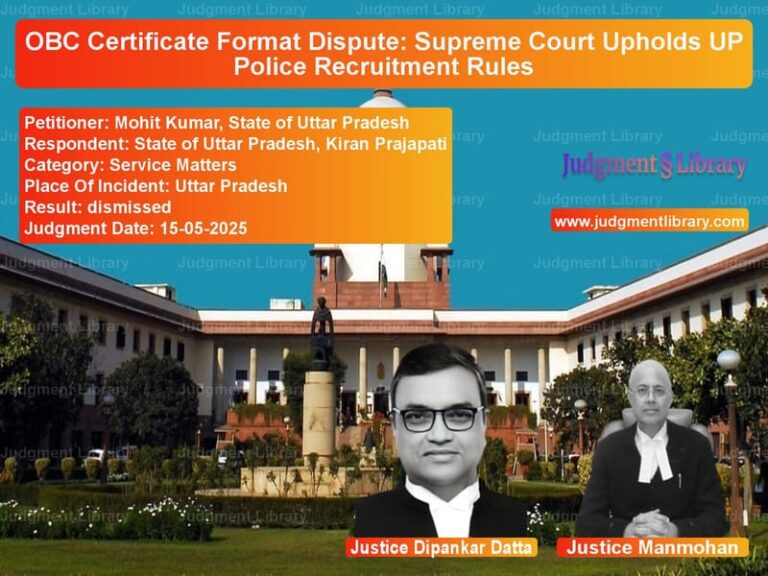Enforceability of Sale Agreements Under Karnataka Land Reforms Act: Supreme Court Sets Precedent
The Supreme Court of India recently delivered a significant judgment in the case of Smt. Narayanamma & Another vs. Sri Govindappa & Others, clarifying the legal standing of sale agreements executed in violation of the Karnataka Land Reforms Act, 1961. The case primarily focused on whether an agreement to sell agricultural land, executed during a statutory non-alienation period, could be legally enforced.
Background of the Case
The case revolved around a disputed property located in Mutkur Village, Hoskote Taluk, Bangalore District. The land was originally granted to Bale Venkataramanappa under the Karnataka Land Reforms Act, with a mandatory non-alienation clause of 15 years. Despite this restriction, Venkataramanappa executed an agreement to sell the land on May 15, 1990, to the plaintiff, Sri Govindappa.
The plaintiff filed a suit for specific performance, claiming that he had paid the full consideration of Rs. 46,000 and was in possession of the land. However, the legal heirs of Venkataramanappa, including the appellants (his wife and daughter), contested the suit, arguing that the agreement was void as it violated the statutory prohibition on alienation.
Key Legal Questions Considered
- Whether an agreement to sell land during the non-alienation period could be enforced under the Karnataka Land Reforms Act.
- Whether the plaintiff could claim rights under the agreement despite its violation of statutory provisions.
- Whether the High Court erred in decreeing the suit for specific performance.
Arguments by the Petitioners (Legal Heirs of Venkataramanappa)
The petitioners contended:
- The agreement to sell was executed in direct violation of Section 61 of the Karnataka Land Reforms Act, which prohibits the sale of granted land for 15 years.
- Since the agreement was illegal and void, it could not confer any rights upon the plaintiff.
- The trial court had rightly dismissed the suit, and the High Court erred in reversing this decision.
Arguments by the Respondents (Sri Govindappa)
The respondent countered:
- Although the agreement was executed during the non-alienation period, the restriction had expired by the time the suit was filed.
- Venkataramanappa had accepted full payment and handed over possession, making the contract binding.
- The defendants failed to contest the suit initially, and the lower appellate courts correctly ruled in favor of the plaintiff.
Supreme Court’s Observations
The Supreme Court examined the legal validity of the sale agreement and made the following key observations:
- Section 61 of the Karnataka Land Reforms Act explicitly bars the sale of granted land for 15 years, making any such transaction void.
- Once an agreement is found to be illegal under statutory provisions, it cannot be enforced, regardless of whether consideration was paid or possession was transferred.
- The High Court erred in granting specific performance, as doing so would amount to legalizing an illegal transaction.
- “No polluted hand shall touch the pure fountain of justice.” The court emphasized that contracts executed in violation of statutory provisions cannot be enforced.
Final Judgment
The Supreme Court quashed the High Court’s judgment and upheld the trial court’s decision, dismissing the plaintiff’s suit for specific performance. The Court ruled:
“An agreement executed in direct violation of statutory provisions cannot be enforced in a court of law. The transaction is void ab initio and confers no rights upon the plaintiff.”
Implications of the Judgment
- For Landowners: The ruling affirms that any sale agreements violating land grant restrictions are void and cannot be enforced.
- For Buyers: Purchasers must verify land titles and statutory restrictions before entering into agreements to avoid legal complications.
- For Legal Practitioners: The judgment clarifies that even possession and full payment do not validate an agreement that violates statutory prohibitions.
- For Judicial Precedent: The ruling strengthens legal safeguards against the unauthorized sale of granted lands, ensuring compliance with state land reform laws.
Conclusion
The Supreme Court’s ruling in this case sets a crucial precedent in property law, reinforcing that statutory restrictions on land transactions must be strictly adhered to. The judgment ensures that agreements violating land reform laws cannot be enforced, preserving the integrity of legislative mandates.
Petitioner Name: Smt. Narayanamma & Another.Respondent Name: Sri Govindappa & Others.Judgment By: Justice Arun Mishra, Justice M.R. Shah, Justice B.R. Gavai.Place Of Incident: Karnataka.Judgment Date: 26-09-2019.
Don’t miss out on the full details! Download the complete judgment in PDF format below and gain valuable insights instantly!
Download Judgment: Smt. Narayanamma & A vs Sri Govindappa & Oth Supreme Court of India Judgment Dated 26-09-2019.pdf
Direct Downlaod Judgment: Direct downlaod this Judgment
See all petitions in Property Disputes
See all petitions in Landlord-Tenant Disputes
See all petitions in Specific Performance
See all petitions in Judgment by Arun Mishra
See all petitions in Judgment by Mukeshkumar Rasikbhai Shah
See all petitions in Judgment by B R Gavai
See all petitions in allowed
See all petitions in Quashed
See all petitions in supreme court of India judgments September 2019
See all petitions in 2019 judgments
See all posts in Civil Cases Category
See all allowed petitions in Civil Cases Category
See all Dismissed petitions in Civil Cases Category
See all partially allowed petitions in Civil Cases Category

